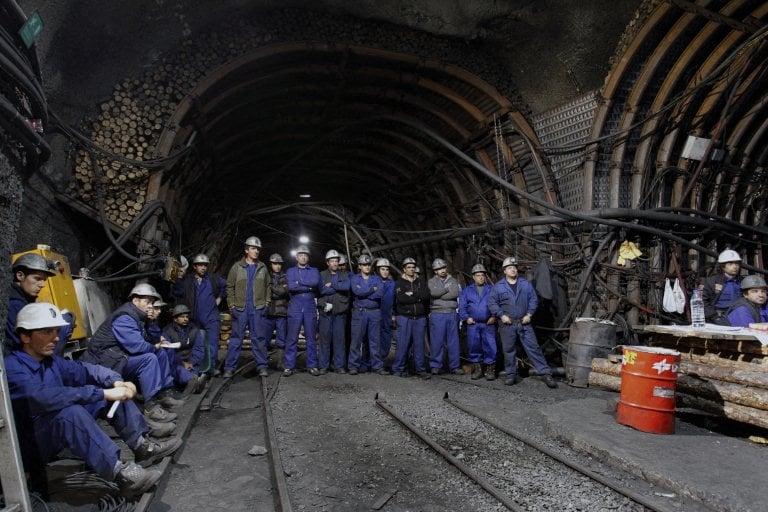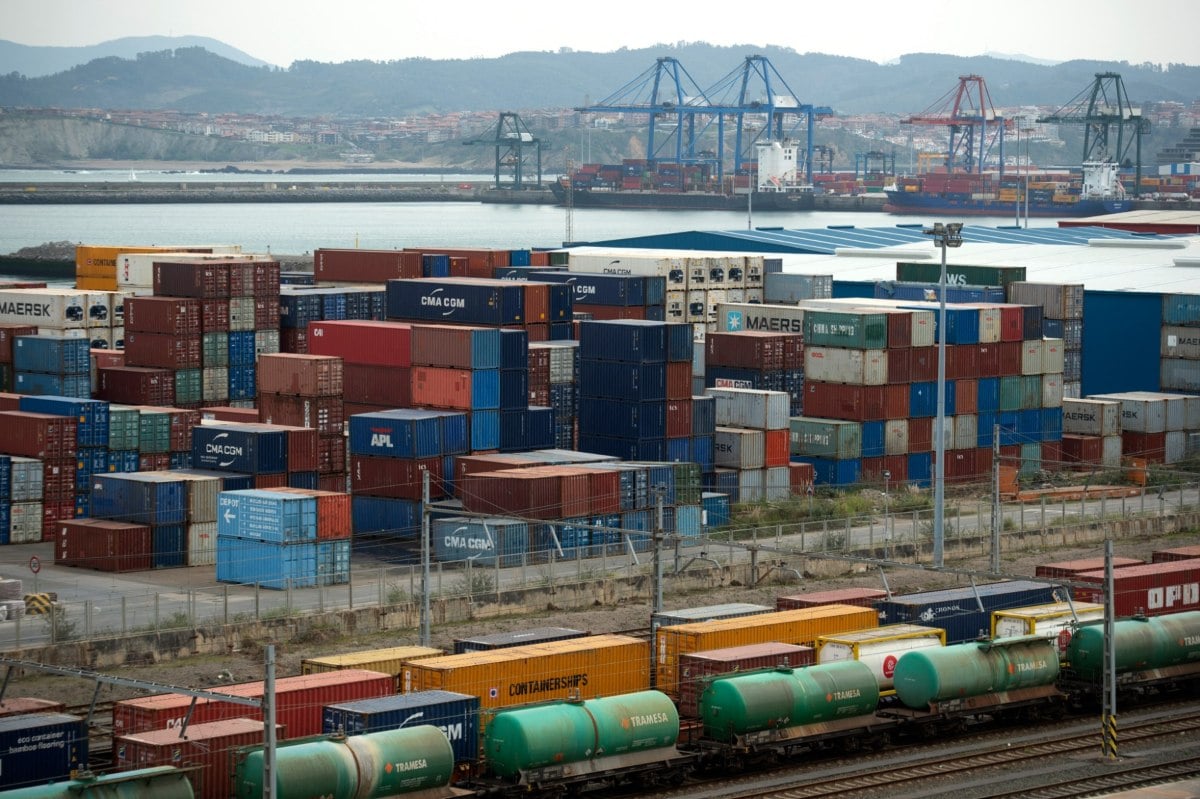The Basque Country is something of an exception in Spain. It’s one of the country’s smaller regions, with a little over 2 million people living there, yet also has one of the lowest unemployment rates in the country and the second highest per capita income after Madrid.
Much of this economic strength comes from a centuries-long industrial history in the Basque Country, as well as a bespoke fiscal agreement with the national government that gives the region greater control over taxes. In recent decades, it’s overtaken Catalonia to emerge as arguably Spain’s real industrial powerhouse.
Though it’s not what it was, industry is still the main economic motor in the Basque economy, making up almost a quarter (23.1 percent) of GDP according to INE data from 2022, meaning it’s the region with the second largest share behind only neighbours Navarre.
It also has a high percentage of people working in industry, 18.5 percent, which is well above the national average (11 percent) and it is also far and away Spain’s strike capital, accounting for around half of all industrial action in Spain.
READ ALSO: Why the Basque Country is the strike capital of Spain
Though historically Barcelona was Spain’s industrial base for many years, a combination of factors have propelled the Basque Country to its status as Spain’s industrial powerhouse in recent decades.
As is often the case with this northern region, the Basques do things slightly differently to the rest of Spain. It has used its pre-existing industrial heritage to take advantage of new technologies, keep industrial hubs at home, introduced effective traineeships and career paths to keep the industrial motor going with local staff, all while benefiting from the regimen foral (chartered regime) that gives the region a level of fiscal autonomy (some would say unfair advantage) from the central government.
Industrial roots
But this is nothing new. The idea of the Basque Country as an industrial powerhouse goes back centuries to the mining industry. From as early as the 14th century, Basque iron-ore mining contributed to economic growth that outpaced many other parts of Spain, and then, in the 18th century, Basque industry shifted its attention to the steel industry.
Around a century or so later, in the 19th century, blast furnaces allowed Basque’s to export iron in bulk quantity, mostly to the UK. As a result of this thriving export business, the Basque Country underwent a period of industrialisation which not only boosted steel production due to increased iron ore production, but it also put Basques firmly in the tool and machinery industry and set the region up for a strong industrial future.

Technological transition
One of the main reasons the Basque Country has emerged as an industrial power is its adaptability. Fernando Barciela, a long-time contributor to El País’ business section, has written on this transition, and how the industrial past set the Basque Country up for success in the future: “In the Basque country, the old blast furnaces, steel industries and tool manufacturing companies of that period have been transformed into a high-tech industrial infrastructure, which includes the automotive and aeronautics sectors, as well as new energies, [and] machine tools.”
As Barcelona’s industrial power wanted at the end of the 20th century, the Basques positioned themselves at the cutting edge of global industry and have established a highly successful export industry, something that contributes to the region’s wealth overall.
READ ALSO: Why are the Basque Country and Catalonia so rich compared to the rest of Spain?
Barciela notes that “they [Basque companies] export between 70-90 percent of their production, achieving surpluses for the region’s trade balance, of some €5 billion in one of the last few years.” Long-term investment in technology and R&D from the regional government has helped solidify the Basque Country as one of the most innovative parts of Europe.
As such, the Basque Country boasts the headquarters of major international industrial names like Iberdrola, Tubos Reunidos, Aernnova Aerospace, Arcelor, Cie Automotive, Irizar, Mondragón, and ITP Aeronautica, among many others. And unlike any other regions that have multinational companies based there, or indeed other countries, the majority of the companies based in the Basque Country are owned and run by long-established Basque families, many of whom work together.
There are also apprenticeship schemes to help local youngsters join industries easily and a more balanced population distribution across the Basque Country as R+D plants and factories are found in smaller towns and villages, not just close to the big cities of Bilbao and San Sebastián.
Barciela also suggests that the Basque Country’s industrial base (and economy more broadly) was insulated from the worst effects of the financial crisis and “it was also a great help that the Basque savings banks were saved from the property bubble. This meant that most of them avoided going bust.”
While around the rest of the country most banks focused on property and mortgages, “the Basque savings banks continued to support industrial projects developed by the companies and backed by the government in Vitoria.”

The future
However, the future isn’t entirely rosy for Basque industry or its economy. According to Spanish public broadcaster RTVE, the region’s economic activity rate is falling and is currently lower than the national rate (57 percent compared to 59 percent nationally).
Similarly, the decreasing weight of its regional GDP in terms of the national economy, and the combination of an ageing population and a worsening public health system, all indicate that changes could be needed in the future. These sorts of structural changes will be costly and could impact on the Basque Country’s position as one of the wealthier regions of Spain. Though with its regimen foral it is unclear how big of an impact this will have.
Even the traditional high wages in the Basque Country are falling closer to national levels. Jon Bernat Zubiri Rey, professor of Economics at the Universidad del País Vasco, told RTVE that in “the Basque Country there was a large wage differential in relation to Spain, but this has tended to decrease” in recent years.
Similarly, the Basque economy itself is beginning to change. Though its industrial base is so well established that it will always likely form the backbone of the Basque economy, the tourist sector, traditionally not as integral there compared to other parts of Spain, has grown since the disbandment of ETA and pivoted to the tourist sector, perhaps most notably with then opening of the Guggenheim museum Bilbao in 1997.
Basque hotels registered 3.6 million check-ins in 2023, 10.4 percent more than in the previous year.
The Basque Country is also having a slower post-pandemic economic recovery than most regions. In 2023 the regional economy grew by 1. percent, well below the national average of 2.5 percent.



 Please whitelist us to continue reading.
Please whitelist us to continue reading.
Member comments